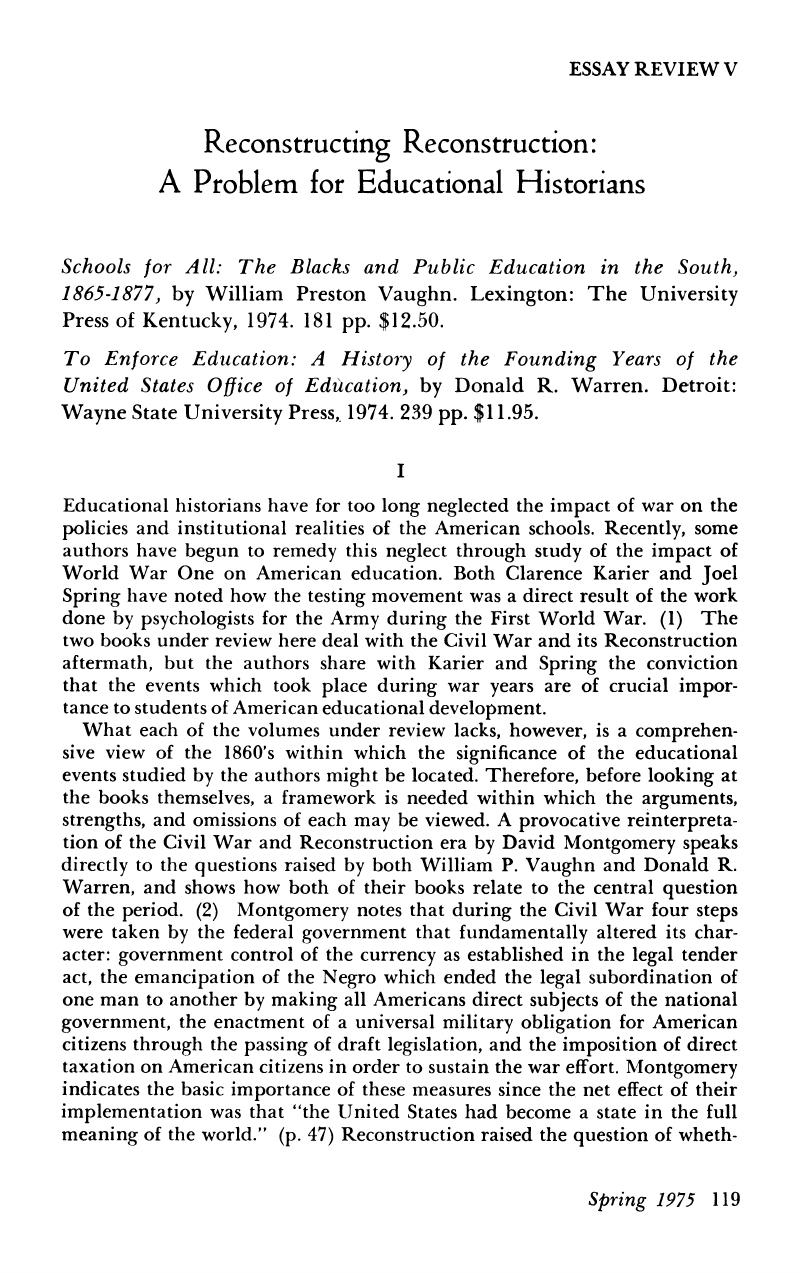No CrossRef data available.
Published online by Cambridge University Press: 24 February 2017

1. Karier, Clarence, “Testing for Order and Control in the Corporate Liberal State,” Educational Theory, 22 (Spring, 1972): 154–80; and Spring, Joel H., “Psychologists and the War: The Meaning of Intelligence in the Alpha and Beta Tests,” History of Education Quarterly, 12 (Summer, 1972): 3–15.Google Scholar
2. Montgomery, David, Beyond Equality: Labor and the Radical Republicans, 1862–1872 (New York, 1967).Google Scholar
3. Harlan, Louis, “Desegregation in New Orleans Public Schools during Reconstruction,” American Historical Review, 67 (April, 1962): 663–75.Google Scholar
4. Vann Woodward, C., The Strange Career of Jim Crow (New York, 1955), and subsequent editions.Google Scholar
5. McFeely, William S., Yankee Stepfather: General O. O. Howard and the Freedmen (New Haven, 1968).Google Scholar
6. Benedict, Michael Les, “Preserving the Constitution: The Conservative Basis of Radical Reconstruction,” Journal of American History, 61 (June, 1974): 65–90.Google Scholar